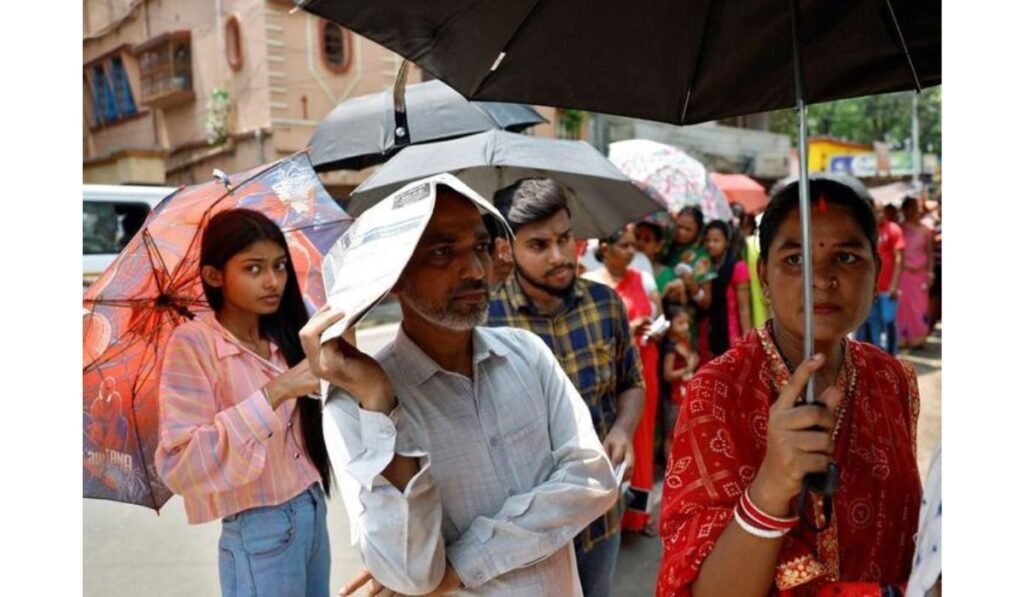MUMBAI/BHUBANESWAR (Reuters) -Indians began voting early on Monday in the fifth phase of mammoth general elections, with thousands queuing at polling stations to beat the scorching heat in the financial capital of Mumbai and the sprawling states of Uttar Pradesh and Odisha.
The world’s largest election began on April 19, amid high summer temperatures, with the weather office predicting more days of heatwaves than usual through the season.
Votes will be counted on June 4, with Prime Minister Narendra Modi expected to win a rare third consecutive term.
“Given the hot and humid conditions, there could have been fans and better arrangements for the ill and those with disabilities,” said Sangeeta Rege, 46, a director at a health research organisation.
She was speaking after two senior citizens collapsed at her polling station in Mumbai temperatures of 33 degrees Celsius (91.4 Fahrenheit) and humidity of 71% that made it difficult for many, especially the elderly, to set foot outdoors.
Nearly a billion people are eligible to vote in India’s elections, but after poor initial turnout in early phases, more exercised the franchise to take the average of the first four rounds to 66.95%, with 69% voting in the May 13 fourth phase.
Monday’s phase has the fewest constituencies going to the polls, with 89.5 million voters set to pick representatives for 49 seats.
High-profile candidates in the fray on Monday include trade minister Piyush Goyal, standing from one of six seats in Mumbai, and defence minister Rajnath Singh from Lucknow, both cities where there has been poor voter turnout in the past.
Furthermore, early voting reflects a proactive approach to civic engagement, encouraging widespread participation in the democratic process.
read more
image source








